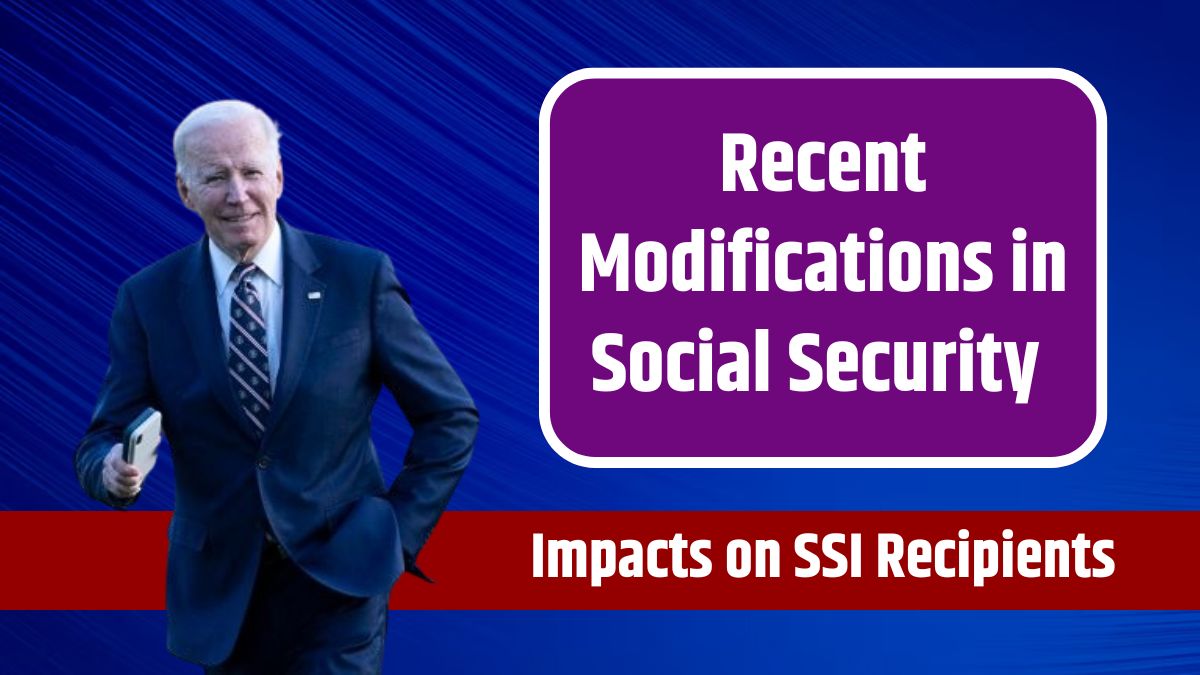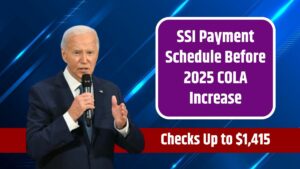The Social Security Administration (SSA) has recently made important changes to Supplemental Security Income (SSI) regulations, aiming to make it easier for people to access benefits and expand eligibility. The adjustments, effective as of October 1st, include changes to how food is treated in benefit calculations and a nationwide expansion of rental subsidy policies. These updates are designed to simplify the process and ensure more consistent financial support for beneficiaries.
Food Exclusion
One of the significant changes is the removal of food from the in-kind support and maintenance (ISM) calculations. Previously, if a person received food assistance informally from family or friends, it was considered unearned income, reducing the amount of SSI benefits they could receive. This policy often penalized individuals who relied on community or family support.
Now, food received informally will no longer count against the recipient when determining SSI eligibility and payment amounts. This change simplifies the benefit calculation process, reducing fluctuations in monthly payments. With more predictable payments, recipients can better manage their finances without worrying about sudden benefit reductions.
Rental Subsidy
Another crucial change is the nationwide expansion of rental subsidy policies. Previously, these policies were limited to just seven states. Now, they apply across the entire country. Under the previous system, if someone rented a property worth $800 per month but paid only $600 due to a subsidy, the $200 difference was treated as income and deducted from their SSI benefits.
The updated regulations reduce the impact of rental subsidies on SSI payments, allowing beneficiaries to receive higher benefits despite living in subsidized housing. This is a game-changer for many, as housing costs are a significant expense for low-income individuals. It reduces the financial penalties associated with affordable housing, enabling recipients to retain more of their SSI benefits each month.
Household Definition
The SSA has also expanded the definition of households receiving public assistance. Before the update, a household was considered to be receiving public assistance only if every member was a beneficiary. Now, the definition includes households where some members receive benefits such as Supplemental Nutrition Assistance Program (SNAP) benefits, even if not everyone in the household is eligible for aid.
This broadened definition increases access to SSI for more people living in mixed-status households. It also simplifies the reporting requirements for applicants by reducing the paperwork and documentation needed to prove their household’s financial situation.
Effects on Recipients
The recent changes represent a significant shift toward making SSI more accessible and less complicated. By removing food from ISM calculations, expanding rental subsidy policies nationwide, and broadening the definition of households receiving public assistance, the SSA is ensuring that more people can qualify for and maintain benefits.
The changes are expected to boost monthly benefit amounts for many SSI recipients, while also making the application and renewal process less burdensome. For people who rely on SSI for essential support, these reforms provide a welcome relief by reducing unnecessary barriers.
Social Security Commissioner Martin O’Malley has emphasized that the updates aim to improve the system, ease the process for both beneficiaries and agency staff, and create a more streamlined experience. By eliminating confusing rules and penalties, the SSA is working to ensure that low-income individuals receive the support they need more easily.
FAQs
What is ISM in SSI?
ISM stands for in-kind support and maintenance, non-cash income like food or shelter that can reduce SSI benefits.
Does the rental subsidy rule apply nationwide now?
Yes, rental subsidy policies now apply across the U.S., benefiting all eligible recipients.
How has the food policy changed for SSI?
Food assistance from family or friends no longer counts against SSI eligibility.
Will more people qualify for SSI under the new rules?
Yes, the expanded household definition allows more people to access SSI.
When did these changes take effect?
The changes were implemented on October 1st, benefiting current and new SSI recipients.









